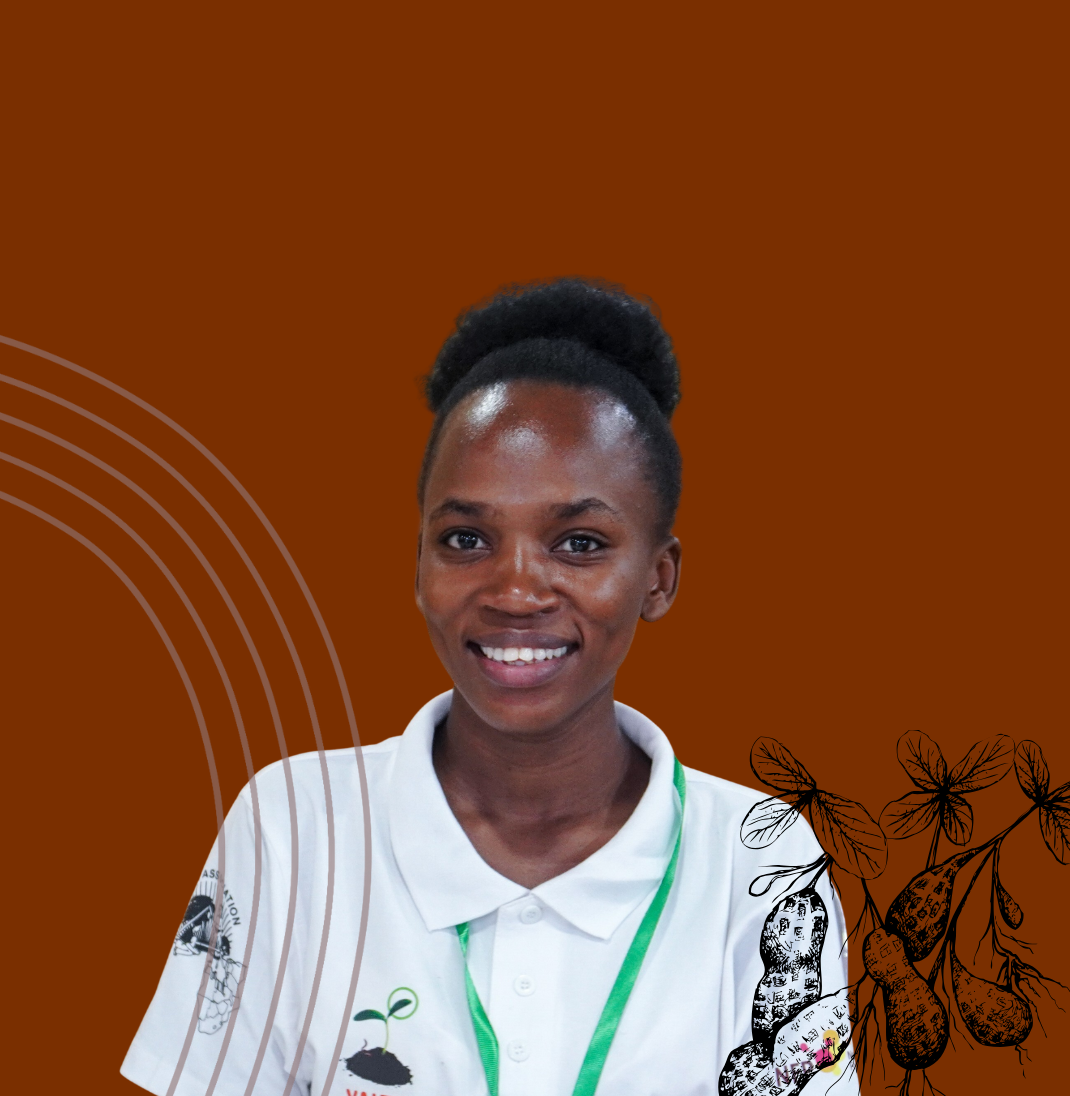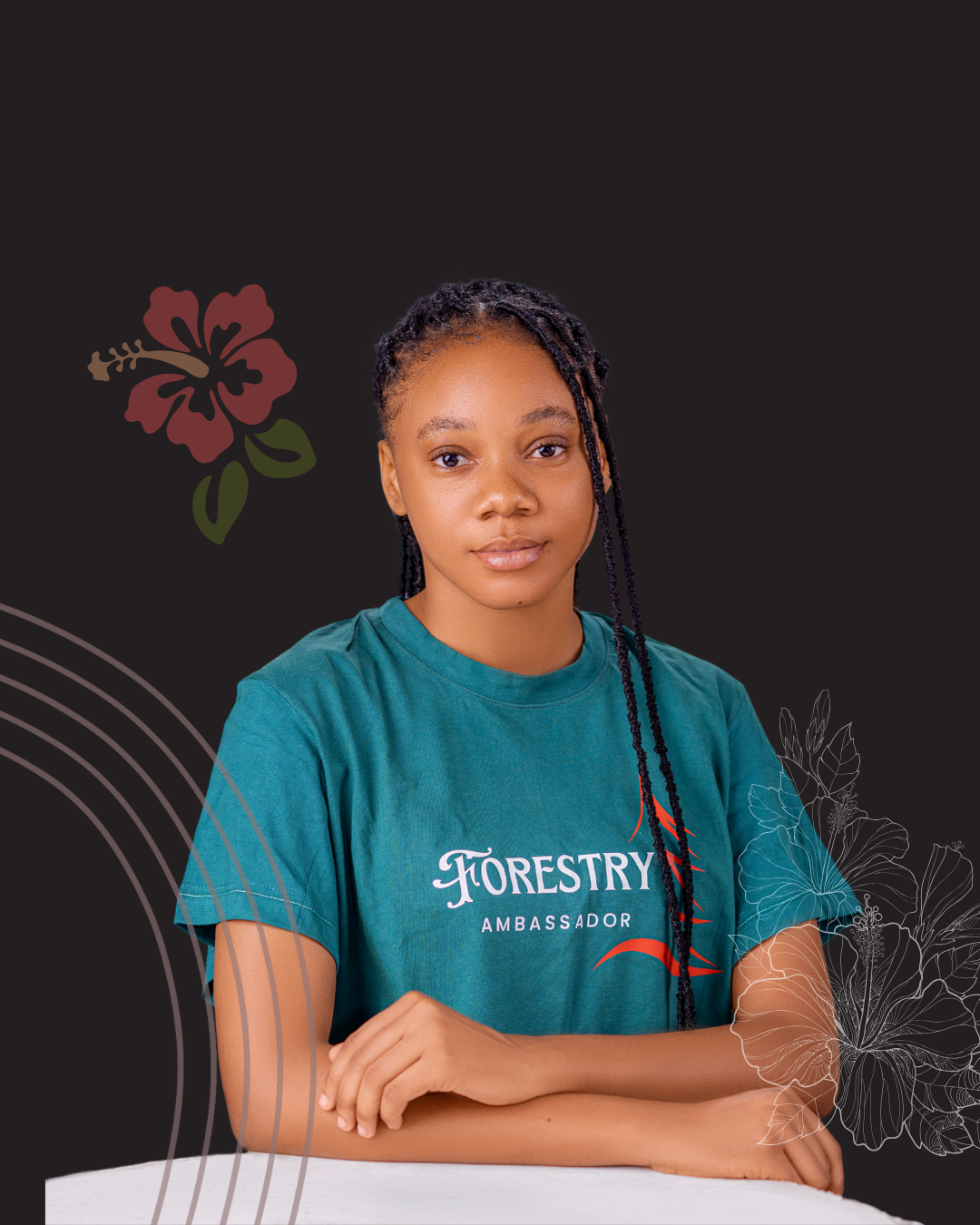These emerging leaders represent diverse regions and bring innovative, community-driven approaches to advancing agroecology and organic agriculture across Africa.
The application process garnered considerable interest, with over 500 applicants across Africa applying to join the fellowship/internship. The final Interns/ Fellows were competitively selected by the consortium based on their projects’ alignment with agroecology and organic agriculture, project feasibility and impact, and inclusivity.
The Community Solution Fellows / Interns are Anyama Henry (Uganda), Nabwire Bridget (Uganda), Harriet Amondi (Kenya), Gitau Irene Wanjiku (Kenya), Ezefor Goodness Ifunanya (Nigeria), and Tabe Brandon Njume (Cameroon). From organic food production and farmer training, to policy and advocacy for young women in agroecology and school feeding programs that promote nutritious diet each of these young professionals brings a unique perspective and a strong commitment to sustainable food systems.
Through their engagement, we aim to strengthen youth and women’s leadership in agroecology while advancing the goals of the KCOA project, which promotes knowledge exchange, sustainable livelihoods, and climate-resilient food systems. The interns and fellows are part of the WYNA Programme, implemented by the Deutsche Gesellschaft für Internationale Zusammenarbeit (GIZ) in collaboration with YPARD, PELUM Kenya, and AGSN.

Bridget is a passionate agripreneur and youth development advocate from Uganda, dedicated to empowering young people through agroecology. She holds a Bachelor’s degree in Community Development and Social Justice from Kyambogo University. Bridget is the Founder of Agroganic Voices Uganda (AVU), a successful Community Solution Projects that amplifies youth and women’s voices in promoting agroecology and organic agriculture as pathways to sustainable food systems in Uganda. Through online campaigns, podcasts, and radio talk shows, AVU will highlight farmer experiences and advocate for green policy reforms. The project will build the advocacy capacity of rural women in Mukono District, develop policy briefs, and foster partnerships with district governments and private sector actors to strengthen market linkages. Community dialogues and awareness forums further engage leaders and citizens in integrating agroecology into local programs, while digital storytelling documents lessons for wider dissemination.
Bridget is also the founder of the Youth Green Fund Initiative, a community-based model promoting waste management, recycling, and green enterprises to advance environmental conservation and circular economy practices. A certified business and soft skills trainer, she empowers rural youth through agroecology, entrepreneurship, and climate-smart livelihoods to build self-reliant, sustainable communities across Africa.

Anyama Henry is a dedicated Ugandan agriculture professional with extensive experience in community development, agricultural extension, and farmer training. He holds a Bachelor of Agriculture from Uganda Martyrs University and has worked with COSMESS Uganda, UBOS, AFRA, and NURI. Skilled in climate-smart agriculture, agribusiness, and data collection, Henry is passionate about promoting sustainable farming, food security, and rural livelihoods. Fluent in English, Kiswahili, and Madi, he values integrity, accountability, and community empowerment. His work continues to strengthen resilience and drive transformation in Uganda’s agricultural sector.
Henry will spearhead the Growing Together Mushroom Project, which empowers farmer families through sustainable mushroom production in Adjumani District, Westnile. The project focuses on oyster mushrooms as a nutritious, income-generating crop that requires little land and utilizes agricultural waste such as maize cobs, banana leaves, and coffee husks. Using the farmer family model, the initiative engages entire households, men, women, children, and youth in mushroom cultivation to promote shared learning and inclusive decision-making. It establishes small, family-managed production units for continuous harvests. The project tackles food insecurity, youth unemployment, and waste underutilization while enhancing nutrition, income, environmental sustainability, and community resilience through practical training and entrepreneurship.

Harriet Amondi is a Master's student and researcher in Agri-Enterprise Development at Egerton University, Kenya. She is passionate about groundnut value addition and empowering smallholder farmers through climate-smart agriculture. Her work focuses on improving rural livelihoods by promoting sustainable farming practices and enhancing opportunities for local processing and market access. Committed to youth engagement and innovation in agriculture, Harriet aims to collaborate with like-minded professionals through YPARD and contribute to building a more inclusive, resilient, and sustainable agricultural and agribusiness sector.
Harriet will be coordinating the Sustainable Groundnut Supply Chain Project, which aims to establish a reliable, eco-friendly source of high-quality groundnuts for peanut butter production by partnering with youth and women farmers in Kisumu. Through training in sustainable cultivation, input support, and post-harvest handling, the project enhances yields and product quality. It promotes fair pricing, value addition, and market linkages to ensure consistent supply while improving farmer incomes and livelihoods. By integrating agroecological practices and local sourcing, the initiative supports food safety, economic empowerment, and environmental sustainability—meeting the growing demand for nutritious, high-quality peanut butter in Kenya's expanding health-conscious market.

Irene is an agribusiness professional with experience in agricultural extension, farmer training, and climate-smart agriculture. She holds a Diploma in Agribusiness Management and has worked with KALRO, Rodi Kenya, and Nakuru County’s Ministry of Agriculture. Irene supports smallholder farmers in soil health, productivity, and sustainable practices. Passionate about empowering women and youth, she promotes agroecology and agripreneurship through organic composting and kitchen gardens. A Climate Reality participant trained under Al Gore, she also holds certifications in gender inclusion and agricultural management. Irene is committed to fostering resilient food systems and inclusive rural development.
Irene will be an intern hosted by PELUM Kenya. She will head the Climate-Smart Agroecology & Livelihood Empowerment Project (CSALEP) aims to build resilient smallholder farming in Nakuru County by empowering women and youth. The project establishes farmer-led organic composting units using local materials, promotes water-efficient agroecological kitchen gardens to improve nutrition and food security, and implements a train-the-trainer model to spread knowledge in communities. By addressing soil degradation, limited access to inputs, and climate shocks, CSALEP enhances sustainable farming practices, income generation, and social inclusion. Leveraging local experience and strong community links, the project fosters environmental stewardship, entrepreneurship, and improved livelihoods for vulnerable rural households.

Ezeofor is a passionate young forester and social entrepreneur from Nigeria committed to sustainable agriculture and environmental conservation. With a background in Forestry, she champions agroecology and organic farming within local communities. As Founder and CEO of G-ACTIVE Drinks, she promotes organic hibiscus farming and empowers small-scale farmers through sustainable sourcing. Formerly Welfare Director of the International Forestry Students’ Association (IFSA-FUTA), Goodness blends innovation, youth empowerment, and climate-smart entrepreneurship. Her work advances nature-based solutions that restore ecosystems, strengthen livelihoods, and build resilient, sustainable food systems across Africa.
The project, Empowering Communities Through Organic Hibiscus Agriculture, builds on the founder’s experience with G-Active Drinks—a natural hibiscus beverage brand supporting local farmers in Ikorodu, Lagos state. Recognizing the challenges smallholder farmers face from poor soil management and costly synthetic fertilizers, this initiative trains 50 women and youth in sustainable organic farming techniques using eco-friendly soil amendments. By improving soil health and crop yields, the project empowers communities to boost incomes, strengthen food security, and establish lasting market linkages for organic hibiscus, fostering both environmental sustainability and economic resilience at the grassroots level.

Brandon, from Cameroon, is the founder of Greensphere, a social initiative turning cassava peelings into clean-burning briquettes for rural communities. His innovation promotes sustainable energy while empowering over 50 women and youth through training in waste innovation and circular economy practices. As an Act4Food Youth Leader and member of the Youth Advisory Council for the African Forest Forum, he advocates for sustainable agriculture, forestry, and youth engagement. Recognized as a National Geographic Young Explorer, Youth4Climate Awardee, and Blue Tech Pitch Winner, Brandon is dedicated to advancing global sustainability and creating inclusive, zero-waste solutions for a greener future.
Brandon is implementing the Kids4Agroecology (K4A) project that aims to empower school children to practice sustainable organic agriculture through an agroecology club and organic school gardening initiative. The project focuses on capacity building for school children through audio-visual tools, vegetable production, and organic soil management to supply fresh produce for school feeding and improve child nutrition. It promotes healthy diets at school and at home while fostering awareness of Agroecology and organic Agriculture. Through training, hands-on learning, and community engagement, Kids4Agroecology (K4A) builds children’s capacity to grow food responsibly, strengthen local food security, and inspire long-term adoption of agroecological practices for a healthier, greener future. Brandon will implement this community solutions project in Cameroon, Southwest Region, Tiko Sub-division.